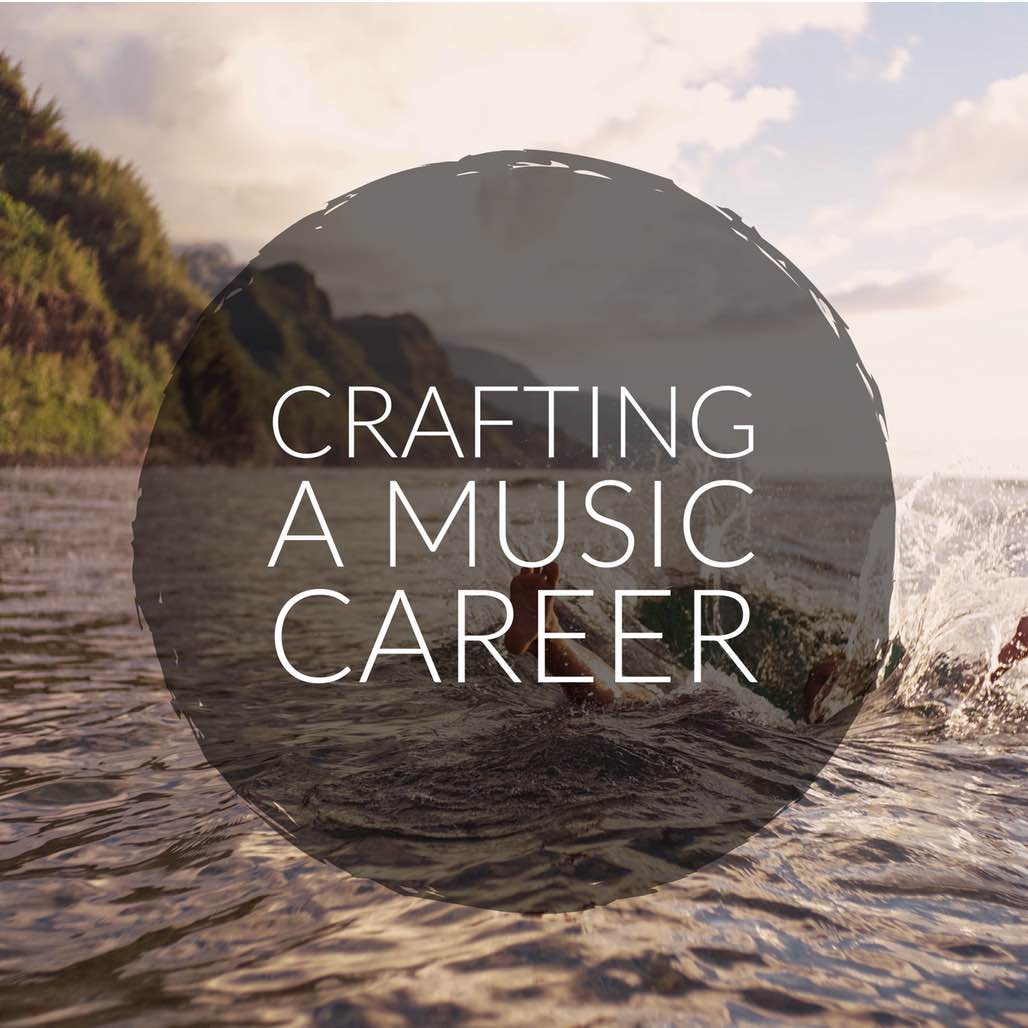
This series is divided into five parts:
- Part 1 – Preface: My Strange Path Through the Music World
- Part 2 – Building My Freelance Career
- Part 3 – How Sinking My Freelance Career Helped Me (what you’re reading)
- Part 4 – Working in Education – What My Career Looked Like Right Before Bailing
- Part 5 – Starting From Scratch – How I’m Building My Portfolio Career
Check out parts 1 and 2 to get caught up with the story!
Like most significant decisions in my life, bailing out of freelance life happened as a result of a conversation with my wife.
We were both freelancers.
Fairly successful freelancers, actually.
My wife’s music career had really taken off after getting her masters in harp.
- She was subbing regularly with the Chicago Symphony and the Lyric Opera of Chicago
- She had contracts with two regional orchestras
- She taught Suzuki harp at two music academies
- She had built up a busy wedding and event business for herself
As a freelancer, she was crushing it.
But she didn’t set out to be a freelancer. She wanted to play in an orchestra full-time.
Putting it mildly, there aren’t a ton of full-time orchestra harp positions. During her five years of freelancing, only one job opened up…and that was for the Army Band!
I also wanted an orchestra job. I thought I did, anyway.
But that ship seemed to have sailed. As I drifted through my twenties, the idea of a full-time job seemed more fantasy than reality.
I had settled into my freelance life. For a few years, I was paranoid that everything would fall apart and I’d never get called again.
Eventually, I realized that everything was going to be OK.
- Gigs would come and go
- Students would quit and new students would show up
- Something would fall apart and something else would work out
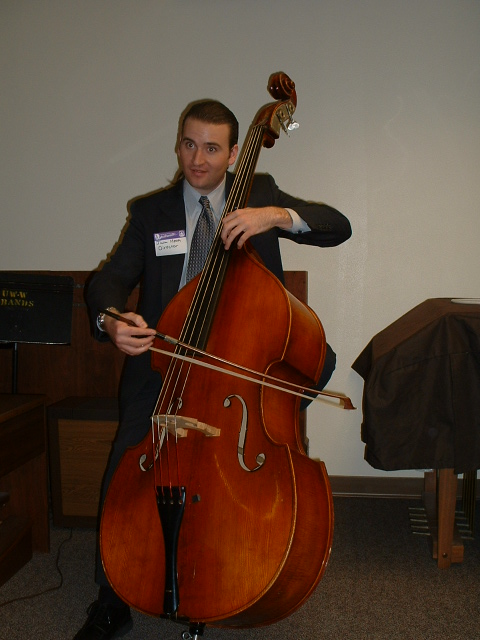
My career karma had built up enough that I always ended up doing well, even though my schedule would look different from year to year.
My wife sent off her resume for the Army harp job. She made a tape and made it to the finals.
Before going to the finals, she had to go to an Army recruiting facility and stay overnight for a barrage of physical fitness tests.
Her roommate that night was a 17-year-old girl basically running away from home to join the Army.
She passed the tests, went to the audition, but didn’t get the gig. Surrounded by a pack of hyper-competitive harpists, she came to a realization.
This life stinks.
She can home and told me that she was quitting music to go to medical school.
Time to become a doctor.
At this point, we were both bringing in a decent combined income as freelancers. We had more or less “entered the middle class.”
A humble aspiration for sure.
But a real achievement for many musicians.
The path from musician to doctor is, to put it mildly, long:
- 3 years of pre-med
- 1 float year taking the MCAT and applying to medical schools
- 4 years of medical school
- 1 year of internship
- 4 years of residency
- 1 year of fellowship
We were looking at eight years of her earning little to no income, followed by six years of fairly modest income (good freelance income but horrible doctor income).
The realization that I’d be the breadwinner for the next decade got me thinking:
Do I like what I’m doing?
Really, do I?
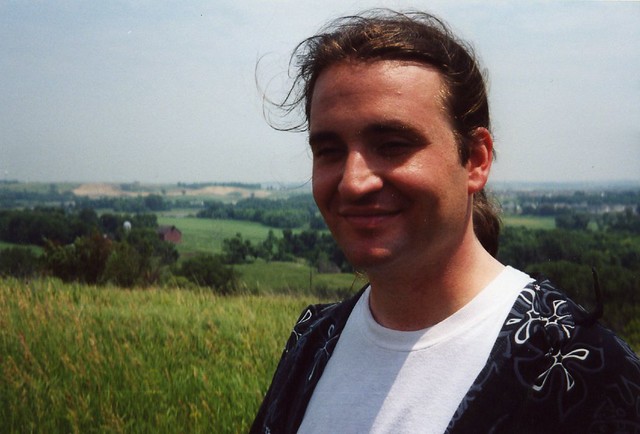
50,000 miles a year of driving.
Constant anxiety about slipping a few rings down the gig ladder.
Driving to a $75 gig in a snowstorm.
Working every evening, weekend, and holiday.
No benefits.
No health insurance.
No savings.
No pension.
I had just turned 30. I looked down the road at my 40-year-old self. Playing the same gigs. Hoping to impress the right contractor. Worried about losing my steady work.
To me, the freelancer lifestyle felt like sitting in a waiting room for the next step in life. That next step never came, however.
The years went by. Wrinkles began to appear. Fresh faces kept appearing on my regular gigs. I used to be the first person at the hall and the last to pack up. Now I was one of the last to arrive and the first to get out of there.
Did I want to keep doing this?
No!
But what the heck am I qualified for?
I felt lost. I also felt the looming financial pressure. We had to pay our bills. That would be mostly on me. Our finances were about to take a dive.
I made a list. What could I do? I flailed around.
For some reason, I went on the FBI website. Join the FBI! That sounds interesting.
I looked into it. Hmmm… maybe no FBI for me. That seemed a little intense.
I looked into some other jobs. Nothing seemed right.
OK–I wanted to do something else. But I didn’t want to start from scratch. I had expertise. How could I use that expertise?
Education was the only thing that felt acceptable to me.

Both my parents had taught in the public schools. I knew that world.
In a state of total doubt, I sent emails to two close friends who were music educators. “Does this make any sense for me?” That was my question.
Both responded enthusiastically. They were so encouraging. They pointed out all the benefits:
- Satisfying job
- Salary schedule
- Benefits
- Pension
- Time off
- Career advancement opportunities
This sounded so appealing after years of freelancing. I met with the music admissions director at DePaul University.
He laid out a clear plan for me that would allow me to keep my freelance career going and finish off a music education degree in about two years.
I chatted with a couple other DePaul faculty members that day. I hopped on the train that afternoon with a clear plan and a genuine smile on my face for the first time in months.
I felt like a great weight had been lifted off of my shoulders.
Those feelings of anxiety about freelance work fizzled and died.
I stopped worrying about what everyone thought of my bass playing. Would I get called again? Did I use tooo much vibrato? Not enough vibrato? Too friendly to the contractor? Not friendly enough?
I no longer cared. I was bailing.
That was around the time that I realized this hard truth.
I was so worried about what people thought of me. Really, though, nobody was thinking anything about me at all.
This was hammered home when I started to tell my freelance colleagues that I was going back to school for education.
I was convinced that all the gig calls would dry up when people learned about my decision to go back to school. To quit. To admit defeat.
People’s reactions were quite the opposite, however:
- They congratulated me
- They were curious what the job looked like
- Many people told me that they were secretly planning exit strategies themselves
The gig calls didn’t stop. If anything, they picked up!
I had started a blog around the same time as making this decision. It was basically a resource dump firmly students. At the time, I had nearly 50 private students at two colleges, three high schools, plus my private studio.
Organizing all of those students was super-challenging. The blog became a place to post lesson summaries, music to order, and favorite recordings to check out.
The blog grew organically.
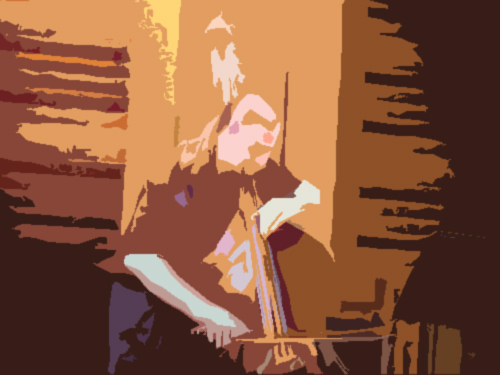
I started a links page. I started to write a few posts about advice for buying an instrument. Over time, I added posts about strings, extensions, summer camps, and the like.
People started to link to my site. They left comments. Offered recommendations for resources. Sent me messages. The trickle of web traffic became a steady flow.
As I prepared to go back to school, I began to write more and more. All that worry over auditions, freelancer hierarchy, and career uncertainty had stunted my creativity. Making the decision to change careers opened the creative floodgates.
Ideas were flowing like crazy. I became fascinated with two different creative threads:
Both of these resonated with people who found my blog. My readership began to grow exponentially. I began putting out more and more content.
My first couple of years blogging changed my life markedly:
- I was featured in several publications.
- The International Society of Bassists brought me on as a board member.
- DePaul University hired me to teach bass and music education.
- Every gig I played, musicians came up to me and shared their own gig stories and freelancer experiences. I had become like a minor celebrity!
- Several organizations hired me to help develop a web presence.
- Advertisers were approaching me for sponsorships.
- I wrote a book on freelancing which garnered much critical acclaim.
- I was getting hired as a speaker for events.
- I started a podcast and began interviewing famous bassists from across the globe.
At the same time, I was taking undergraduate music education courses and cramming in students and gigs in every spare moment. I was sleeping 4 hours a night at best and was running on coffee and junk food. The podcast and blog were eating up 20-30 hours a week on top of everything else.
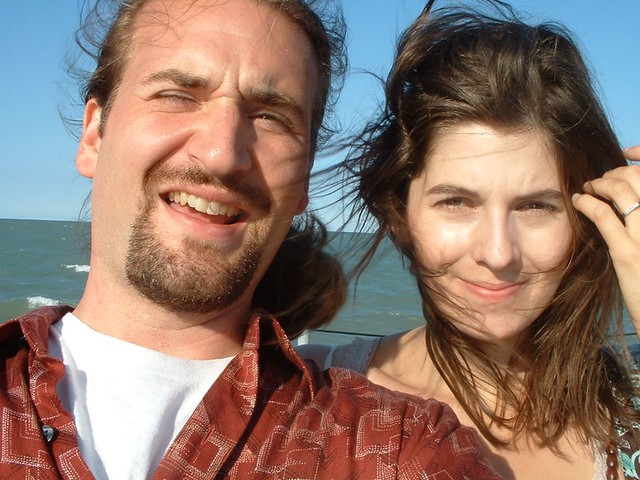
I saw two trajectories for my life:
- Go full-force into this blog/podcast/consultant/speaker life
- Stay the course and go into education
Clearly, there was momentum behind the projects I’d started. The opportunities were increasing for me in this arena.
My concern was that this new path would just be a different form of freelancing. I had gone through such a cathartic moment giving up (in my mind, at least) the freelance thing. I was reluctant to chalk up the education degree as a mistake.
At the same time, the education courses were bumming me out. It was frustrating working these creative new projects and sitting in elementary music education methods classes with 18-year-olds.
I was on the verge of quitting the music education degree.
A conversation with my father talked me off the ledge. I decided to compromise. I dropped down to part-time at DePaul, which extended my coursework by six months but opened my schedule up a lot.
In the end, I decided to make a go of the education career. These reasons tipped me in that direction:
- I really wanted, for once in my life, to have an actual full-time job.
- I liked the social nature of public education. I wasn’t sure about sitting in front of a computer by myself all day. The idea of working live with large groups of young people appealed to me.
- The idea of being part of a full-time faculty appealed to me.
- I was obsessed with having a salary and benefits. I’d spent years dreaming about having these.
- I wanted to be a member of a “tribe.” Freelancing felt fuzzy and alienating to me.
- The idea of a clear career path with professional development opportunities was compelling.
- I didn’t want to work seven days a week anymore and was worried that this was what life would continue to look like for me otherwise.
Did the education path work out for me like I’d anticipated? Next time!
This series is divided into five parts:
- Part 1 – Preface: My Strange Path Through the Music World
- Part 2 – Building My Freelance Career
- Part 3 – How Sinking My Freelance Career Helped Me (what you’re reading)
- Part 4 – Working in Education – What My Career Looked Like Right Before Bailing
- Part 5 – Starting From Scratch – How I’m Building My Portfolio Career
Thanks for reading, and I’d love to hear any thought you may have! Leave a comment below or email me at doublebassblog@mac.com.
Bass News Right To Your Inbox!
Subscribe to get our weekly newsletter covering the double bass world.

Long time reader, first time commenter — thanks so much for writing these posts! I am considering a career change myself (while also trying to sort out some mental health stuff) and the most helpful thing to me has been hearing other people’s stories. Whether they ultimately decided to continue freelancing/performing or chose a different path, it’s reassuring to know that I’m not the only one struggling with these worries, and that most of these people (including you!) have thrived whatever they chose!
So glad that you’re enjoying these posts! It has been a while since I really dug into these topics, and it’s great that you are finding it valuable. I always love hearing about the different paths that people take throughout their lives. I think that’s why I love doing podcast interviews for Contrabass Conversations so much.
Thanks again for the comment!